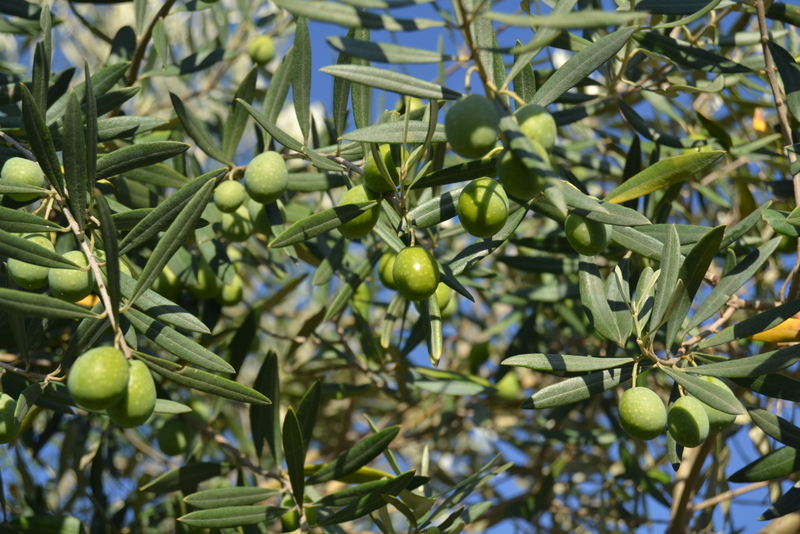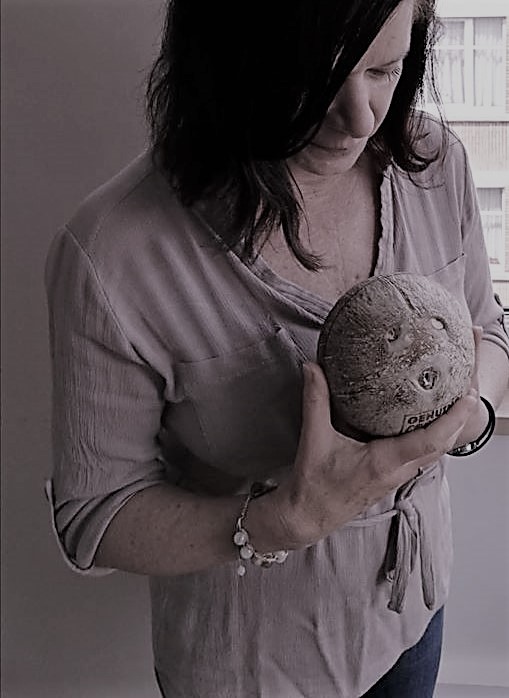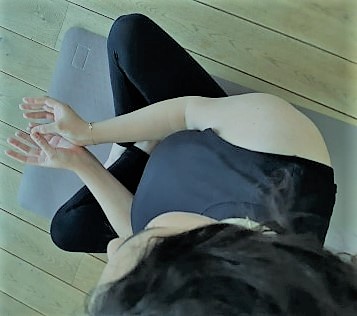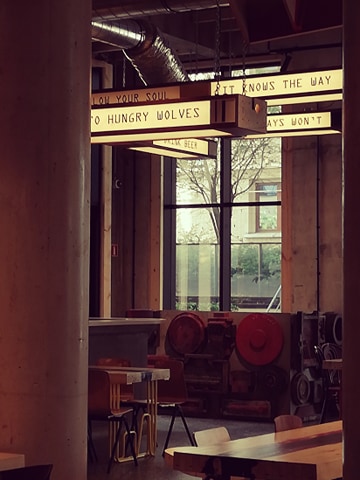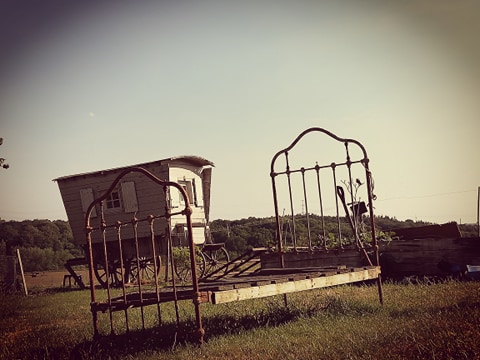Chystala som sa tento víkend napísať nový blog, keď mi zrak padol na dokument v počítači starý viac ako šesť či sedem rokov. Otvorila som ho zo zvedavosti – taký, aký je, nie je na zverejnenie, ale niečo by som z neho rada zdieľala precedené cez prítomný okamih. Rámujem ho teda prítomnosťou, hoci aj tá už je minulosť:
Šla som dnes do práce na bicykli, krížom cez Etterbeek po cyklistickom chodníku popri bulvári generála Jacque, kopírujúc trasu električky 7. Sčasti je dláždená mačacími hlavami, na ktorých bicykel (skvelý, ručne montovaný, z Holandska) hrkoce a naskakuje. Až pred ambasádou som zistila, že mi z nosiča spadla taška – nie hlavná taška s „dôležitosťami“, ale predsa, bol v nej denník, obsahuje tajomstvá tohto roku, okrem toho kódy, čísla, odkazy a všeličo možné.
Vysadla som teda znova na bicykel (v sandáloch na podpätkoch) a vracala som sa po svojich stopách. Prešla som takmer dve tretiny, potom som to obrátila, a v duchu prenechala tašku osudu. Hádam ju niekto len zahodí v obave z vírusov, v lepšom prípade, na prvej strane vždy napíšem meno a telefón, takže by mi ju mohol nálezca aj vrátiť. A znova som šla popri trati električky, koľajnice sa leskli v rannom slnku, slabšia letná špička doznela, takže takmer žiadne autá na dohľad. Ďaleko pred sebou som zbadala medzi koľajnicami čosi biele. Buď prejdený holub, vreckovka alebo?
Bola to plátnová taška, spučená, a v nej zošit, nepoškodený.
No marilo sa mi, že som tam ráno doma dávala viac ako jednu vec…
Späť k starému dokumentu z počítača, má názov Hľadanie. Vznikol v náročnej situácii, auto-terapeuticky.
„Spisovateľka,“ povedala som komusi z kamarátov mojich rodičov, keď sa pýtali, čím budem, keď vyrastiem. Jedna z obligátnych otázok, tá druhá – Máš radšej mamu alebo otca? – bola len takou skúškou, či dieťa odpovie správne: Oboch! Dodnes neviem, prečo sa to všetci pýtali.
Čím budeš? mi nespôsobovalo nijaké zaváhanie. Vedela som, že odpoveď je pravdivá a motivácia správna, nešlo o snahu ohúriť.
Skôr, ako som vedela naozaj písať, zapĺňala som stránky haky-baky písmom, čiarkami, slučkami a bodkami. Výsledok ma uspokojoval, strana plná tajomných znakov. Potom som sa naučila čítať a písať. Neustále som čítala, nutkavo, často dokola tie isté obľúbené knihy. Pred očami mi rástli svety.
„Pozri, Katka, mlyny!“ ukazovala mi mama nadšene, keď sme cestovali po obdivovanom Západe. Nos som mala zaborený v Anne zo Zeleného domu, duchom som bola na Ostrove princa Eduarda a mlyny za oknami auta ma nezaujali. Mama nechápala. Príhoda sa stala rodinnou anekdotou.
Ako malá som napísala pár básničiek, v puberte sme s kamarátkou písali román na pokračovanie: o dvoch kamarátkach a ich láskach. Všetko také triviálne, predpokladateľné, málo originálne..
Skutočné povolanie sa rodí ťažko. Hlboko skryté pod nánosmi seba kritiky, posudzovania a odsudzovania, pochybovania a lenivosti. Prečo? Lebo aj to má svoj zmysel...
Toto je kúsok z textu, ďalšie časti hovoria o detských traumách, a nepatria sem. No hojenie tráum, vlastných aj medzigeneračných je témou dneška.
V zošite prejdenom električkou je veľa o traume z opustenia. Dlho som o nej nevedela, bola gniavivou, nutkavou, dobre známou podprahovou bolesťou, s ktorou som sa naučila žiť. Nikto z dôležitých ľudí ma v detstve neopustil, a tak som jej dlho nerozumela. A možno ani netreba, poznanie mysľou je vždy len fragmentovité, lepšie si pamätá telo, priamejšia je cesta cez pocity a city. Sčasti je to určite trauma predkov a vojny, všetky tie pretrhnuté vzťahy, drámy odchodov, neistota návratov… Myslím, že si ju nesieme všetci.
No nedávno mi tieto dni docvakol celkom iný aspekt, asi podstatnejší: nejde o traumu opustenia niekým iným. To ja som sa opustila, keď som časti svojej osobnosti chcela vytesniť, zmeniť, ignorovať, zotrieť, skrátka, zbaviť sa ich. Nedá sa. A tak som ich skúšala opustiť. Aha-moment.
Asi stačí. Asi viac nateraz netreba.
Popoludní som šla z ambasády domov, bicykel, sandále, všetko je rovnaké, svetlo je iné, deň pokročil, každý rozhovor, každé jedlo, každá vybavená vec, nás pretvárajú. Cez deň som prišla na to, čo bola druhá vec v plátnovej taške: moja kozmetická taštička. Prišla som na to, keď som chcela vytiahnuť lesk na pery alebo zrkadlo, veci, bez ktorých je deň v úrade neznesiteľný. Hrkocem popri trati sedmičky, ale ešte o dosť vyššie od miesta, kde ležal zošit. Na mieste, kde sa križuje na bulvári Louise sedmička s osmičkou, je čosi povedomé. Prázdna taštička na franforce, so šmuhami rúžu.
Britský seriál Peaky Blinders skvelí herci, Anglicko v roku 1918, po Veľkej vojne. Chuť žiť a nemožnosť zotrieť s blatom zákopov aj rany duše. Blato, smrť a strach sú zároveň psychologický drive, surový materiál, predpoklad transformácie.
A rada by som toto prepletanie teraz nechala doznieť do ticha, ale ešte jedno zistenie, ktoré ma oslobodilo tieto dni:
Nepotrebujeme opraviť. Nepotrebujeme byť opravení. Nepotrebujeme sa opravovať. Skrátka, nepotrebujeme opravu. Objavujeme sa, a to je hojenie.
